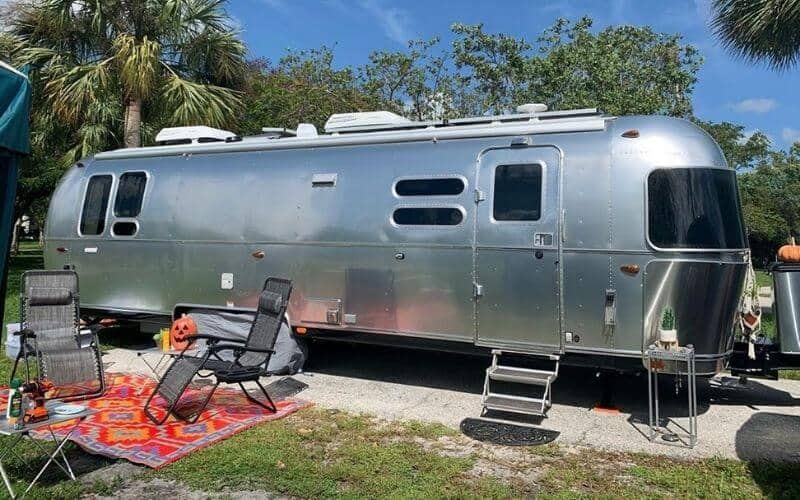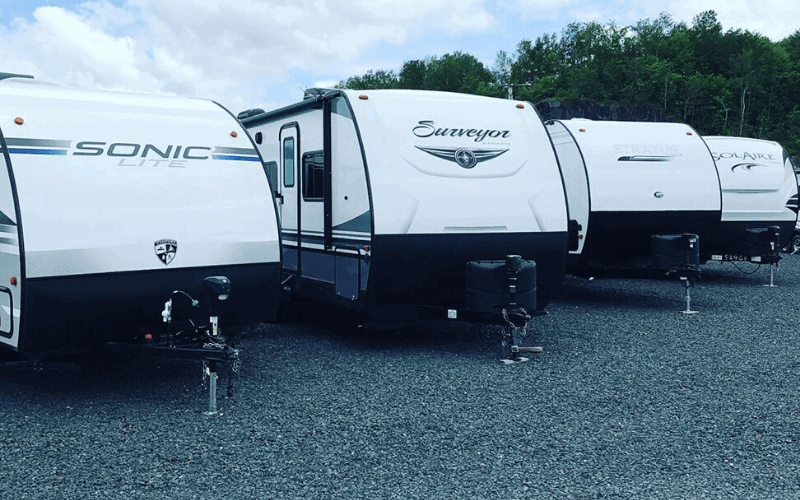Camper titles get lost, stolen, misplaced, destroyed, or otherwise compromised. That’s just the unfortunate reality of life.
But the good news is that there are avenues for how to get a title for a camper without a title if you’re trying to buy, sell, or establish ownership of an RV.
When you’re looking into buying a new RV, asking about the existence of the title is probably one of the last things you consider.
For most of us, amenities, price, and RV conditions are top-of-the-mind and whether or not the RV has a title is often an afterthought.
But there’s quite possibly nothing worse than already having your mind made up to buy a camper when you find out that it doesn’t have a title.
If this does happen to you, don’t just walk away because all is not lost! Here’s how to get a title for a camper without a title.
How To Get A Title For A Camper Without Title?
There are many reasons why a camper might not have a title. But whatever situation you find yourself in, moving forward requires an understanding of what the DMV needs to verify in order to issue you a new title. So that’s going to be our focus today!

How To Complete Title Application?
There are five basic steps you’ll need to take to apply for a new title for your camper or RV.
We’ll break these steps down further as we continue, but here’s a brief overview of the important steps to complete your title application.
1. Download a title application form from your state’s DMV website
-
You can also obtain a paper form if you head to your local DMV office
2. Fill in all required information on the application form
3. Gather other important documents
-
This includes, but isn’t necessarily limited to, bill of sale, certificate of inspection, proof of lien status, and certificate of origin from the camper manufacturer
4. Include title application fees
-
These will change depending on vehicle information, but they should be specified on your title application form.
5. Mail or hand-deliver all documents to your local DMV office
What Will The DMV Check?
When you’re trying to apply for a new title for your camper, there are several initial things that the DMV in your area will need to verify.
If your RV can’t check all of these boxes, it could impact your ability to get a new title for your camper.
When you begin the process of applying for a new title for your camper, the DMV is going to start by verifying that your RV isn’t stolen or on a lien.
They are also going to check that there aren’t any pending legal issues or cases relevant to your vehicle’s status.
And, finally, they’re going to check that your camper is compliant with all state-specific safety requirements.

How To Apply For A New Title For A Camper?
Once those initial four checks are completed, you can continue with the next step of the title application process.
Depending on the state you live in, you might be able to register online and then mail in your paperwork along with title fees.
In some states, you’ll need to physically deliver all required documents to your local DMV office and then pay the title fees in person.
In terms of the paperwork you’ll need to compile to apply for a title for a camper, here’s a brief list for you to work with:
- Application for a new title
- Original title, bill of sale, or certificate of origin from the manufacturer
- Your driver’s license
- Lien status document
- Certificate of inspection from DOT or RV dealership
Obviously you probably won’t have the original title if you’re researching this topic, so you’ll need to obtain that bill of sale or certificate of origin from the manufacturer.
It should also be mentioned here that each state’s DMV could require a slight variation of the documents listed above.
So be sure to check your local DMV’s website to obtain the right documents for a new title.
What Do You Need For A Title Application?
Filling out your title application form is a great place to start when applying for a new title for your camper.
You should be able to download the appropriate form from your state DMV’s website, but the form number may differ depending on which state you live in.
Once you have the form downloaded, this is a comprehensive list of the information you’ll need to fill it out completely.
1. Vehicle year, make, model, mileage, license plate number
2. Vehicle Identification Number (VIN)
3. Your personal information
-
Name, date of birth, physical address, social security number, driver’s license number, employee identification number (if applicable)
4. Vehicle specifications (i.e. gross vehicle weight rating (GVWR)
5. Lien information (if applicable)
6. Camper’s current tax status
7. Valid notary stamp (if required by your DMV)
8. Transfer on death beneficiary (TOD), if applicable
Please note that certain states may require more or less information, depending on local vehicle transfer and registration laws.
If you’re filling out your title application in advance, you should know that it’s acceptable to leave certain boxes blank if you’re not certain about the information that should be filled into that box.
A DMV officer can help you complete your application form at the window if you have any questions.
Also, be sure that you print and sign your name on the document with the appropriate date heading before mailing it in or handing it to a DMV official in person.
In some cases, you may need to have your RV weighed in order to verify the GVWR information that’s provided in your vehicle’s specifications.
This is usually the case if you’re buying a used RV from a private party because the DMV will want to verify that the previous owner didn’t make any major modifications to the vehicle that drastically affected its weight.
The odds are there are several locations in your area that you can take the camper to in order to have it weighed.
Highway weigh stations are very popular locations for having an RV weighed and most weigh station attendants won’t have any problem helping you out if they aren’t busy.
They will then sign off on a valid proof of weight form that you can turn in with your title application packet.
If you’re not sure where exactly you can get your vehicle weighed in your area, we’d recommend going directly into your local DMV office.
They should be able to supply you with a list of at least two or three nearby locations where you can get your camper weighed if you need it.
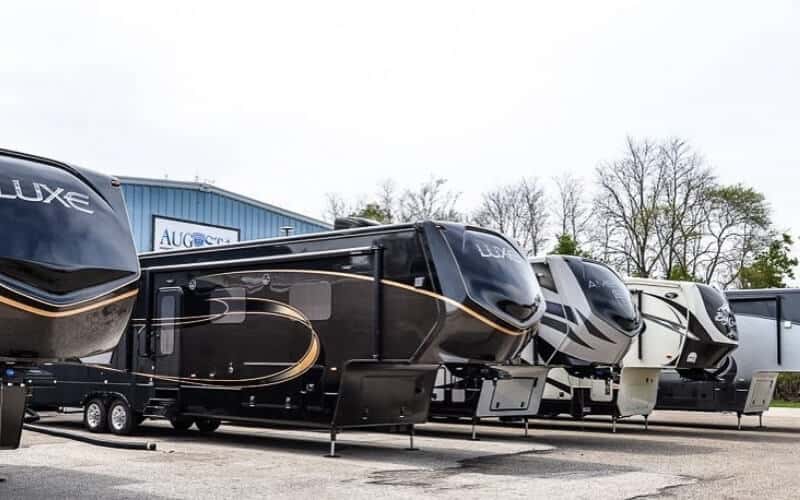
How To Get A Bill of Sale?
The obvious way to obtain a new title for your camper is to have the original title in hand. That means that the DMV will simply have to change the owner’s information in order to issue you a new title.
But if you don’t have the original title (which is the point here), you’ll need a valid bill of sale or certificate of origin from the camper’s manufacturer.
A bill of sale is a legal document that verifies the sale of an RV from one party to another in exchange for financial compensation.
You can obtain a bill of sale form online or you can even create your own. If you choose the latter, make sure you include the following information:
1. Price and date of sale
2. Vehicle Identification Number (VIN)
3. Personal and contact information of buyer and seller
4. Camper’s previous tax status
5. Additional pertinent information
- This may include, but isn’t limited to, whether the buyer needs a vehicle inspection completed and if a security deposit has (or had) been made on the vehicle
6. Signatures of buyer and seller in front of a notary or third-party witnesses
In some states, your DMV may require additional information on a bill of sale.
So, be sure to check your DMV’s website to ensure that you include all the required information.
And you should make sure that both the buyer and seller keep a copy of the bill of sale for their personal records, as this will help you avoid future legal disputes.
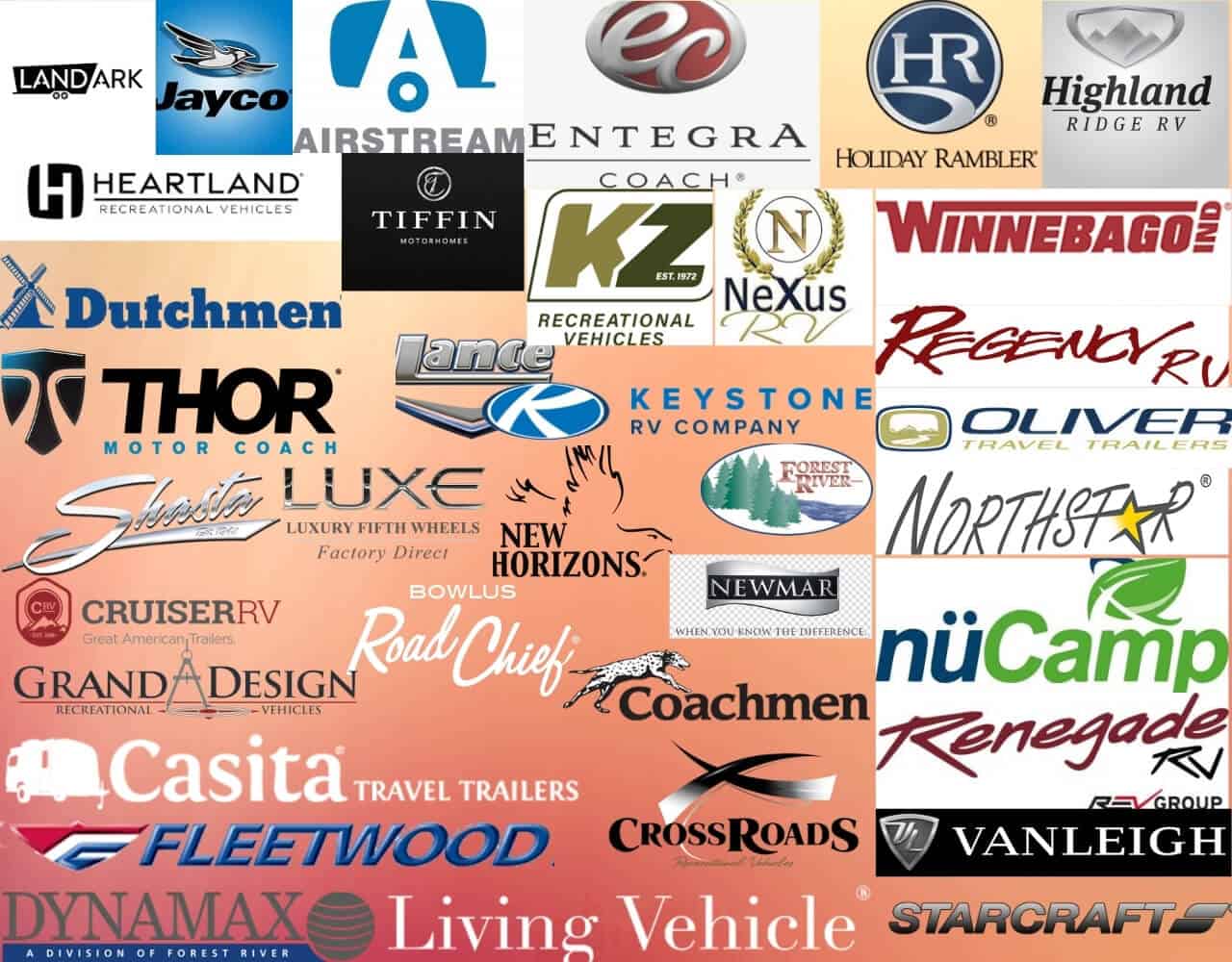
How To Get A Certificate of Origin From Manufacturer?
One of the problems that can arise from buying a camper without a title is that the DMV will have trouble verifying the original specifications of the RV.
These specifications are generally included in the original title, so if you don’t have one you may have to contact the camper’s manufacturer to get them to issue you a certificate of origin.
When you buy an RV directly from a dealership, they automatically send this document to your DMV to verify the vehicle’s specifications.
If you buy a used RV, you’ll need to contact the dealership that originally sold the vehicle in order to obtain this document.
But before you do so, you’ll need to gather the necessary data that will be included on the certificate.
This data may differ depending on your state, but it generally includes the Vehicle Identification Number (VIN), year, make, model, vehicle description, current odometer reading, and a bill of sale (if applicable).
Once you have that data compiled, you’ll need to locate the dealer that originally sold the vehicle.
This information is public record and can typically be found using a vehicle title history search service, such as Carfax.com.
In some cases, the dealer may not have an original copy of the certificate of origin on file.
If they do not, you can request that the dealer contact the camper’s manufacturer to obtain the certificate.
If for some reason, the dealer is not able to provide you with a certificate of origin, you may be able to obtain one by contacting the state DMV office where the vehicle received its original title.
You can request that DMV furnish you with a copy of the certificate they have on file or direct you to the appropriate department where you can obtain that title.
This, however, is only necessary if you can’t obtain a certificate of origin directly from the dealer or RV manufacturer.
How To Obtain A Certificate of Inspection?
You’ll also need to have your vehicle inspected by the Department of Transportation (DOT) to apply for a new title.
This inspection is designed to ensure that your camper meets your state’s vehicle safety standards.
The elements of your RV that will be inspected will depend on the state in which you live. Common RV elements that are inspected to obtain this certificate, however, include:
1. Condition of:
- Tires
- Wheels
- Brakes
- Side and rear reflectors
- Taillights and headlights
2. Visibility of license plates
In most states, RV dealerships will provide this inspection service. And it can be a good idea to have this inspection done before you get too far into the title application process because it will give you a good idea of any RV repairs or fixes that you should perform in order to have everything go off without a hitch.
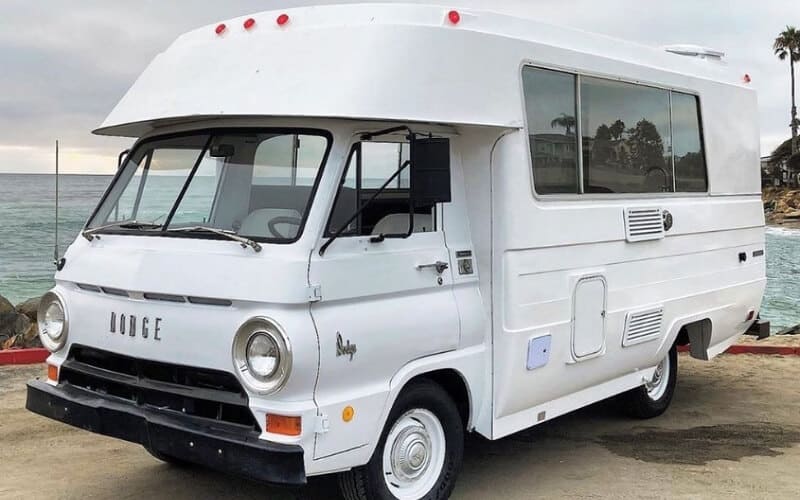
What If I Built My RV?
In certain cases, it might be impossible for you to obtain a bill of sale or certificate of origin from your camper’s manufacturer.
This is usually most common when folks have built their own recreational vehicle or converted an old bus or van into a vehicle they can live in full-time.
If this is the situation you find yourself in, you’ll need to seek what’s called a ‘scrap title’ from your local DMV.
This is essentially a certificate of title that is given to owners of vehicles that didn’t previously exist and it provides you with the option to create a new VIN number for your built RV.
Conclusion
There’s no good reason why you shouldn’t follow these steps for getting a title for a camper without one.
This is your legal proof of ownership and a failure to get a new title if you’ve just purchased an RV that didn’t have one can open you up to all sorts of legal and liability issues.
The good news is that you should be able to follow the simple steps we’ve outlined today to help you obtain a new title for your camper.
As more DMV offices move to online services, you should also make sure to thoroughly research how much of this process can be done online before you waste time waiting in person at your local DMV office.
That being said, local DMV officials are an extremely valuable resource for getting answers to specific title application questions that aren’t clearly answered online.
So, we wouldn’t hesitate to head right down to your local DMV office to get any outstanding title application questions answered if anything remains unclear!

